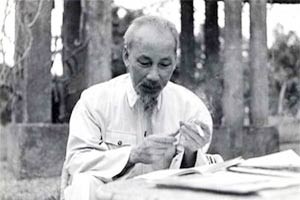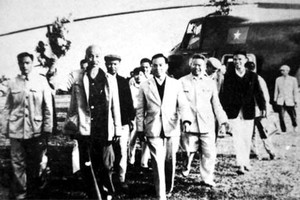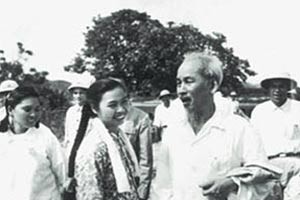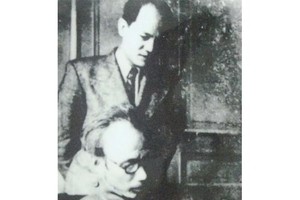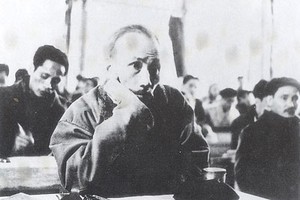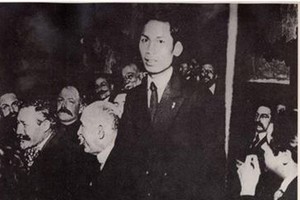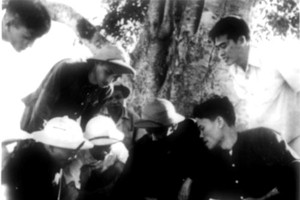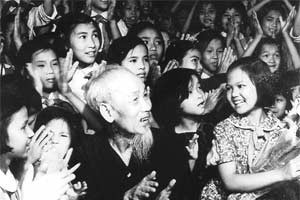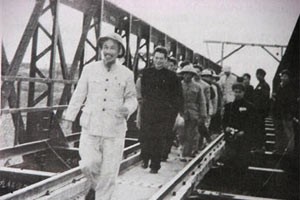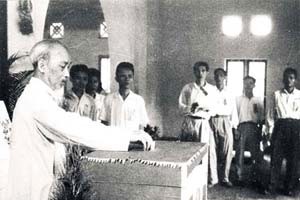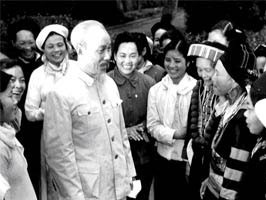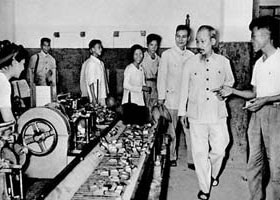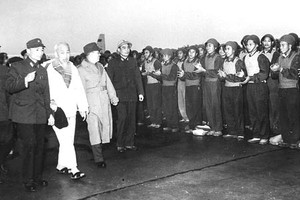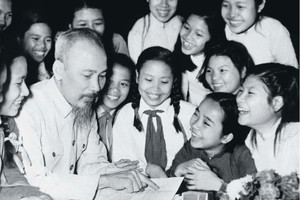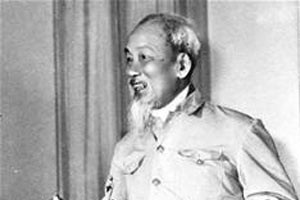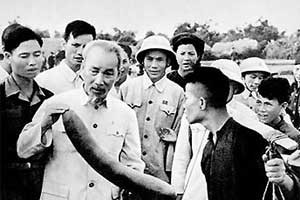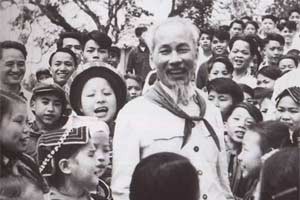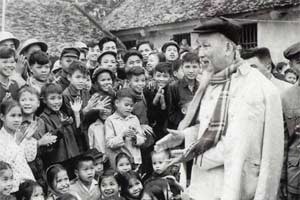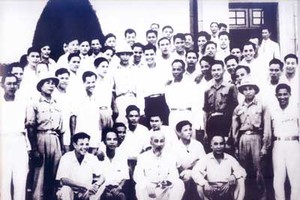1911
Latouche-Tréville, a French cargo ship aboard which Ho Chi Minh traveled under the alias of Van Ba, berthed at Port Said, Egypt, before crossing the Suez Channel into the Mediterranean Sea and sailing to the south coast of France.
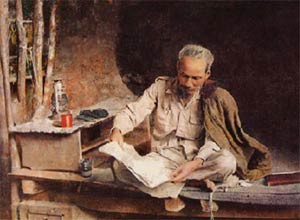
1923
With a one-month visa issued in the name of Chen Vang by Russian officials in Germany, Nguyen Ai Quoc arrived in Russia’s Petrograd Port aboard the Kark Liebnek, which sailed from Hamburg, Germany.
Nguyen Ai Quoc stayed at the Lux Hotel in Moscow and got in touch with the Communist International as a colonial member of the Communist Party of France.
1945
Through radio, President Ho Chi Minh informed A. Patti, the commander of the US’s Office of Strategic Services (OSS) in Kunming, China, of his willingness to receive an OSS unit that would parachute into a revolutionary base in Vietnam to join hands with the Vietnamese army in the fight against the Japanese fascists.
1946
During his stay in Paris, President Ho Chi Minh visited the well-known Museum of Human Beings and said: “Every nation has its own culture, but they all share a common concept: love good and hate evil.”
1947
President Ho Chi Minh sent a congratulatory message to the Executive Committee of the Democratic Party of Vietnam on its third anniversary.
The Party, embracing intellects and patriotic bourgeoisie, was established about one year before the August Revolution in 1945.
The message read: “In the democratic world, in a democratic Vietnam, the Democratic Party has an important duty -- that of helping democracy achieve total success. Each Party member must set an example of sacrificing for the fatherland and people.
“As for non-partisan, patriotic democratic people, they should consider national salvation and reconstruction a goal to pursue.”
1961
Speaking at the fourth conference of the Party's Central Executive Committee in Hanoi, in which a resolution on reviewing the Party’s leadership was passed, President Ho Chi Minh said: “Next time the agenda of a meeting and a resolution thereof must go together with each other. Every Party member, from the central to local levels, must be an example of revolutionary virtue.
“Looking at the report on education program up to the 10th grade, I found it was insufficient, since it did not mention moral education much,” he said.
Regarding building the Party, he said: “There exists a phenomenon in which older Party members impose their viewpoints on younger ones despite having inferior knowledge of economics and culture than the latter.
“There are some senior cadres at the central level who once made great contributions to the country but are now incompetent. Only those who are competent now should be assigned suitable tasks. There must be a plan to replace older cadres with younger ones. Pensions and other incentives must be provided sufficiently to retirees. I would like to volunteer to retire... Talented young cadres must be promoted.”
By Duong Trung Quoc* and co-writers
*The author is a historian and member of the National Assembly
